In the journey of love and connection, it’s essential to recognize the signs that differentiate a healthy relationship from a toxic one. Just as clear skies signal a calm day, identifying red flags early on can help you navigate the stormy waters of toxicity.
Learn to identify the 8 signs of a toxic relationship. Discover red flags and empower yourself with insights to navigate towards a healthier and happier future. Empower yourself with insights into recognizing the signs of a toxic relationship. Learn how to identify red flags and safeguard your emotional wellbeing for healthier connections.
In this article, we’ll explore how to recognize the 8 signs of a toxic relationship, empowering you to make informed decisions for your emotional and mental wellbeing. Discover how to protect your emotional wellbeing and navigate relationships with insight and empowerment.
Understanding Toxicity
A toxic relationship is characterized by patterns of behavior that undermine the wellbeing of one or both partners. These patterns can erode trust, respect, and emotional safety. Recognizing the signs of toxicity is crucial to maintain your self-esteem, emotional health, and overall happiness. Learn to recognize the signs of a toxic relationship and identify red flags early on.
1. Constant Criticism
Think of a clear day that is then unexpectedly overcast with rain. Constant criticism in a relationship is essentially this. When criticism pours in, it overshadows the happiness and optimism that should reign. Constant criticism can affect your self-esteem and emotional health in the same way that rain can ruin a lovely day.

Words should be used to build others up, not to undermine them, in good relationships. Opening an umbrella to shelter yourself from negativity and let your light shine is analogous to realizing that you are constantly being criticized.
In a toxic relationship, criticism takes center stage. A partner who consistently belittles, ridicules, or undermines your feelings can create a hostile environment. Healthy relationships are built on mutual respect and support, not constant negativity.
2. Lack of Respect
Imagine a beautiful garden with well-maintained flowers that are blooming. Imagine a garden where the flowers are being shunned and allowed to wither. This is the core of a relationship lacking respect. When one person ignores the boundaries, opinions, and feelings of the other.
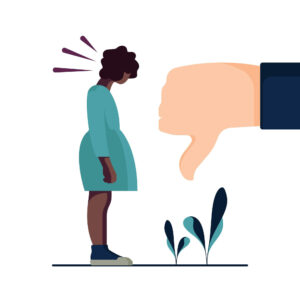
Like a flower needs attention to grow, so do relationships that are based on respect. We are reminded that every relationship should be a garden of mutual compassion and thoughtfulness by the way in which a lack of respect can foster an atmosphere of hurt and misunderstanding.
Respect is the cornerstone of any healthy relationship. If your partner dismisses your opinions, belittles your choices, or disregards your boundaries, it’s a clear sign of a toxic dynamic. Healthy relationships thrive on mutual respect and the recognition of each other’s autonomy.
3. Control and Manipulation
Think of a puppeteer manipulating the cords that cause a puppet to move. Control and manipulation in a relationship are essentially expressed in this way. When someone tries to control another person’s decisions, actions, and thoughts, that is when it happens.
Control and manipulation can leave you feeling confined and restricted, much to how a puppet loses its independence. Love is about freedom, mutual support, and trust in a good relationship. Gaining your liberty and fostering a relationship based on equality and respect begin with acknowledging control and manipulation.
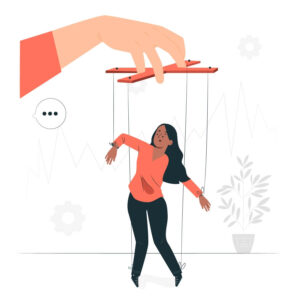
Toxic relationships often involve an imbalance of power. Partners who manipulate, control, or exert dominance undermine your ability to make independent decisions. Healthy relationships are based on equal partnership and the freedom to express your thoughts and emotions.
4. Isolation
A toxic partner may isolate you from friends and family, creating a sense of dependency. Healthy relationships encourage individual growth and social connections. If you find yourself becoming increasingly isolated, it’s important to assess the dynamics of your relationship.
Picture a lovely landscape with colourful flowers and majestic trees. Just picture a walled-off version of that garden, isolated from the outside world. Isolation in a relationship has its roots in situations like this. It occurs when one person tries to isolate the other from their social circles and networks of support.

The same way that a flower needs sunlight to bloom, connections are the food that relationships need to flourish. We are reminded that healthy relationships are based on reciprocal growth and the freedom to reach out to others by how isolating ourselves can make us feel dependent and lonely.
5. Gaslighting
Gaslighting is a form of psychological manipulation where your partner denies or distorts reality to make you doubt your perceptions. If you find yourself questioning your memory, feelings, or experiences due to your partner’s constant denial, it’s a red flag of toxicity.
Picture yourself struggling to solve a problem where the pieces don’t match. The core of gaslighting is as described above. When someone twists the facts, it causes you to doubt your own emotions and thoughts.
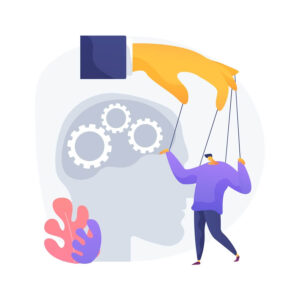
Gaslighting can leave you perplexed and uncertain of yourself, just like a magician’s act can leave you amazed but perplexed. You can regain clarity and confidence in your own senses by recognising this manipulation, which is like locating the last piece of a puzzle.
6. Emotional and Verbal Abuse
Imagine a situation where the words spoken cause more harm than good. This is the core of verbal and emotional abuse. When rude remarks, screaming, and degrading words take precedence over the understanding and kindness that should be at the center of any relationship, that is when conflict arises.
Verbal and emotional abuse can have a long-lasting impact on your self-esteem and emotional health, much like a wound can leave a scar. The first step towards obtaining the respect, assistance, and care that every relationship should offer is realizing this behaviour.

Any form of emotional or verbal abuse, such as yelling, name-calling, or demeaning language, is unacceptable. Healthy relationships promote open communication, empathy, and addressing conflicts respectfully.
7. Lack of Accountability
Think of a relationship where commitments are made but broken and errors are never admitted. This is what it means to be unaccountable. The other person feels offended and unheard when one person refuses to accept responsibility for their actions.
In order to establish trust and respect, actions are just as important as words in conveying meaning. For a stronger and more harmonic connection, it’s critical to address and patch up relationship breaches caused by a lack of accountability.

Toxic partners often avoid taking responsibility for their actions and shift blame onto others. Healthy relationships involve mutual accountability and a willingness to address mistakes and apologize when necessary.
8. Constant Drama
Imagine a world where there are ups and downs, twists and turns at every turn. This is what perpetual drama in a relationship is all about. It’s an emotional roller coaster that can leave you fatigued and unclear of what will happen next.

Constant drama in a relationship can be exciting but can also have a negative impact on your emotional health, just like a roller coaster can be fun but also overwhelming. It’s a signal that you should achieve stability and equilibrium so you can travel together in better health.
If your relationship is marked by constant drama, chaos, and emotional roller coasters, it’s a sign of an unhealthy dynamic. Healthy relationships provide stability, emotional support, and a sense of security.
Conclusion
Recognizing the signs of a toxic relationship is a crucial step towards safeguarding your emotional and mental wellbeing. By understanding the red flags of constant criticism, lack of respect, control, manipulation, isolation, gaslighting, emotional and verbal abuse, lack of accountability, and constant drama, you empower yourself to make informed decisions about your relationship’s direction.
Remember that you deserve a relationship that nurtures your growth, happiness, and sense of self-worth. If you find yourself in a toxic relationship, seeking support from friends, family, or a mental health professional can help you navigate the challenges and make choices that prioritize your emotional health and happiness. Ultimately, recognizing and addressing toxic dynamics early on can lead you towards a path of healing, growth, and healthier relationships in the future.
Other Interesting Posts To Read:
Maximizing Productivity: How to Get More Done in Less Time
5 Mindful Practices for Lightning-Fast Decision Making
Mindful Breaks: Recharging Your Energy with Lightning-Fast Pauses
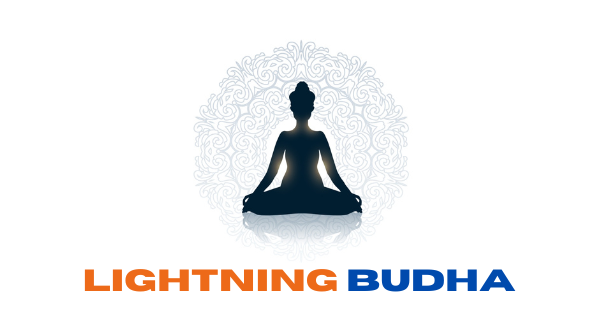
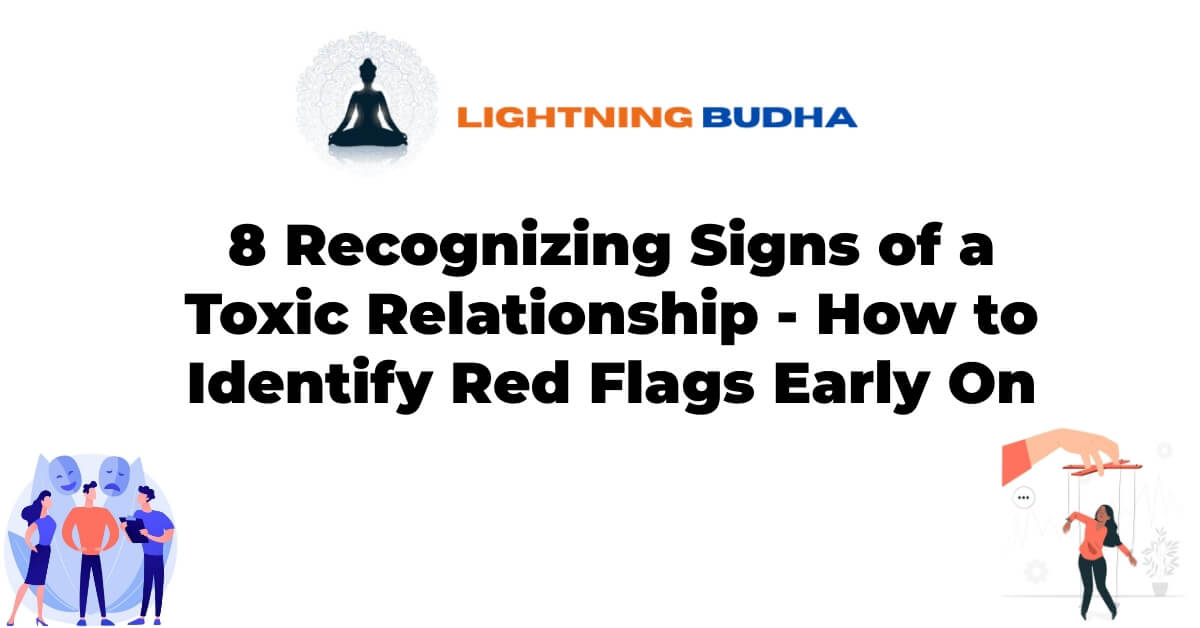
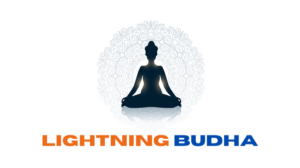
Your article helped me a lot, is there any more related content? Thanks!